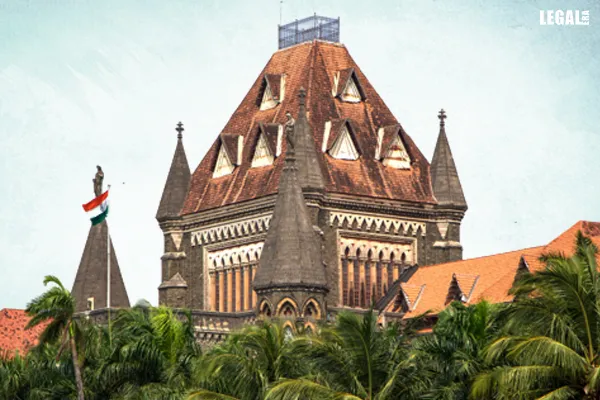Tax Cannot Be Imposed Presuming Small Causes Court’s Possible Order: Bombay High Court
The matter pertained to the dispute between Neville Wadia and IDBI on breaches allegedly committed by the latter;

Tax Cannot Be Imposed Presuming Small Causes Court’s Possible Order: Bombay High Court
The matter pertained to the dispute between Neville Wadia and IDBI on breaches allegedly committed by the latter
The Bombay High Court has held that an amount cannot be taxed that has not accrued to the assessee and has not been received by the assessee on the presumption that the Small Causes Court (SCC) would order the sum in favor of the appellant-assessee in future.
The bench of Justice GS Kulkarni and Justice Jitendra Jain observed that the determination of the amount payable by the IDBI to the appellant as prayed for by the appellant in its suit was to be determined by the SCC. Only after the court passed a final decree it could be said that the right to receive the sum decreed accrued to the appellant. Until then, the right to receive any sum by the appellant was in jeopardy and sub-judice before the SCC.
The appellant/assessee is the leaseholder of Neville Wadia Pvt. Ltd., which entered an agreement with Bombay Builders to construct a building at Cumballa Hill in Mumbai and sell 30 flats to the appellant at an agreed price.
On 22 April 1980, by a tripartite agreement, Bombay Builders, as the confirming party, was substituted with IDBI as the sub-lessee, and the appellant sub-leased the property on an annual lease rent of Rs.3,42,720 to IDBI.
The appellant received the rent and offered Rs.3,42,720 as lease rent in its Income Tax Return (ITR) for the Assessment Year 1981–1982. The income was offered for tax under ‘Income from Other Sources’.
The dispute between the appellant and the IDBI arose from various breaches allegedly committed by the IDBI. It led to the appellant terminating the sub-lease agreement and refusing to accept the rent from IDBI.
In 1981, IDBI filed a declaratory suit in the SCC and obtained an injunction against the appellant for terminating the sub-lease agreement.
The department issued a garnishee notice to IDBI under Section 226(3) of the Income Tax Act, 1961 for the appellant’s outstanding tax arrears. It directed the IDBI to pay the rent to the Income Tax Department.
The appellant informed the department that since the sub-lease agreement was terminated, no rent was due and payable by IDBI to the appellant. Therefore, the garnishee proceedings were illegal.
The IDBI was also sent a copy of the letter. The appellant reiterated the termination while recording that IDBI should not make the payment to the IT department under the garnishee notice. However, IDBI still deposited the amount with the department.
In 1984, the appellant filed a suit for eviction against the IDBI and claimed various reliefs, including compensation for the occupation of the flats and their wrongful use.
An assessment order under Section 143 read with Section 148 for the Assessment Year 1986–1987 was passed. The rent on account of the sub-lease agreement of the appellant with the IDBI amounting to Rs.3,42,720 was added as the appellant’s income.
The appellant contended that it had terminated the sub-lease agreement with the IDBI in 1981 and filed an eviction suit before the SCC. The IDBI had also filed a suit to restrain the appellant from terminating the agreement and dispossessing it. Both the cross-suits were still pending adjudication by the SCC. Thus, no accrual income arose under the sub-lease agreement between the entities.
On the other hand, the IT department contended that whether the suit pending before the SCC was allowed in favor or against the appellant, the SCC would at least order IDBI to pay Rs.3,42,720 per annum towards the use and occupation of the property of the appellant since it was in IDBI’s possession.
The judges noted that the IT department was wrong that irrespective of the fate of the civil suits, the SCC would never order less than Rs.3,42,720 to the appellant, and, therefore, accrued the ascertained sum.
The bench held, “This would amount to pre-empting the decision to be rendered by the Small Causes Court in the cross-suits filed by the appellant and the IDBI.”

